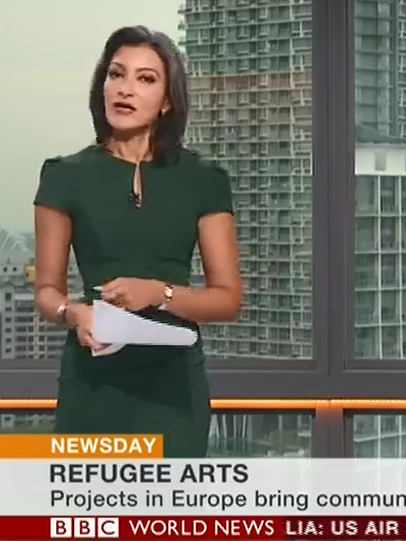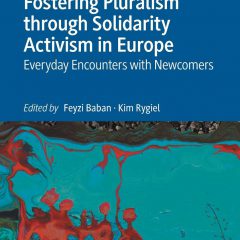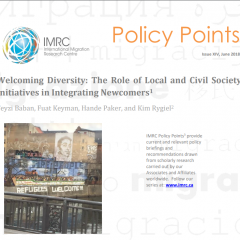iKSV report featured on BBC World News Oct. 17, 2018
Transcript
BBC World News Presenter 0:00
The increase in refugee and migrant populations around the world has given rise to anti migrant sentiments and questions over how we can all live together. Well, could part of the answer be as simple as investing in the arts? In a report compiled by the Istanbul foundation for Culture and Arts in Turkey, which itself is housing millions of Syrian refugees believes it might. One of its authors is Feyzi Baban. He joined me earlier from Istanbul.
Feyzi Baban 0:28
Myself, my colleague Kim Rygiel, we’ve been conducting this research in various European countries to look at the different citizens initiatives to use arts and culture to bring newcomers into local communities and break the boundaries between local populations and the newcomers. There are actually quite alot of interesting cases all around Europe, from Denmark to Germany and Turkey included, where local populations and refugees actually come together on various projects at different cities and neighbourhoods, to understand each other much better.
BBC World News Presenter 1:05
And tell us a little bit about these projects. Because we know art encompasses a lot of different things that painting etc. So what activities particularly work?
Feyzi Baban 1:15
I’ll give you some examples by for instance, in Denmark, which the Copenhagen municipales port it’s called 100% foreign a Danish artists in cooperation with the refugees that they had big over hundreds, big billboards around the city, where the refugees and their stories were juxtaposed all over the city. It allowed the locals of Copenhagen to constantly see these refugees and learn their experience the museum’s of Germany, for instance, they regularly incorporate refugee experiences. In one project for instance, in Berlin, it’s called multicar allows refugees to act as museum guides, where the refugees actually reinterpret the museum artefacts and the story is in the perspective of refugees.
BBC World News Presenter 2:07
It is interesting you talk about these experiences in museums in Germany, but we have seen in in places like Germany, particularly anti migrant campaigns marches in the streets. So how do you use art to work against something like that this very extremist thought?
Feyzi Baban 2:23
I think what happens is that in most cases, that the people they have these anti refugee sentiments when they don’t know anything about the refugees, their stories, that they come from this the arts actually bring out the refugees as who they are, and breaks down this bond without seeing the refugees is one big, abstract group of people, all of a sudden you actually start seeing them as individuals with their stories. I mean, obviously, not everybody’s going to, you know, go in that direction. But I think what the specific projects does that it helps people to understand who the refugees are.


